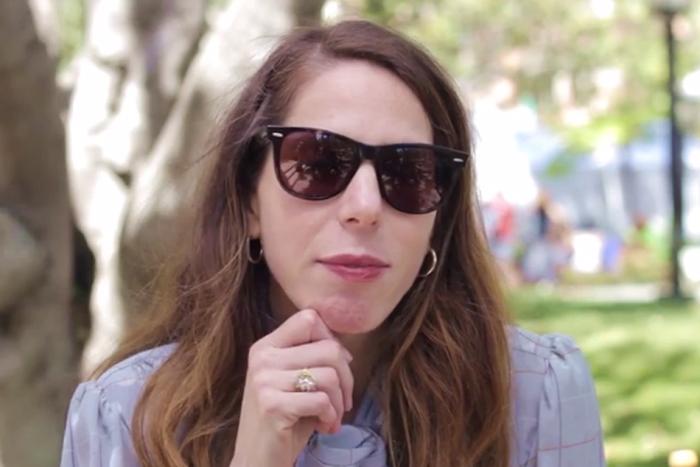I spend my days producing metadata, which is mostly made up of kitten pictures and online recipes, so stuffed with banality it can barely waddle. Sometimes I text a friend. We discuss the weather, or what it would be like if people had tails. My guess is it won’t be of much interest to the Communications Security Establishment Canada (CSEC) which collects the stuff at airport wi-fi hot-spots, but then I’m not the expert, they are.
They say they’re not spying, or collecting personal information on Canadians. According to leaked documents they’re merely working out “a new needle-in-a-haystack analytic” to find specific, foreign targets. If I understand the analogy, that makes you, and me, and everyone we know the haystack, and if they’re studying each of us stalk by stalk to figure out who’s a needle and who’s not, that sounds like spying to me.
Anyway, they say, metadata isn’t real information but rather (according to Stephen Harper’s national security adviser) “data about data,” which is of course meaningless and yet has the ring of sound poetry: one gets lost in the rat-a-tat rhythm of the language, which may be the point. Maybe metadata is more like a pointillist Seurat painting which most of us, blind to context, see only as pigment noise, but to the trained eye a figure snaps into focus.
The conservative line on the surveillance state, the daily panopticon of cameras and supermarket loyalty-card scanners and smartphone leavings, is that we have nothing to worry about if we haven’t done anything wrong. But as long as we’re unwittingly shovelling data at CSEC they’ll find a use for it: our trivial information, about who and what we like, dislike, value, fantasize about, discuss, and consume can at some point be promoted to the level of evidence. In other words, if they’re not finding any needles, they’ll turn their attention to the haystack. Enemies who are not found are created.
“Everything can be distorted,” says a character in Your Face Tomorrow: Fever and Spear, the first of a trilogy by the Spanish novelist Javier Marías, “twisted, destroyed erased, if, whether you know it or not, you’ve been sentenced already, and if you don’t know, then you’re utterly defenceless, lost. That’s how it is with persecutions, purges, with the worst of intrigues and plots, you have no idea how frightening it is when someone with power and influence decides to deny you.” The novel is a spy story as if written in tandem by Kafka and Henry James after drinking too much and arguing over who could cast the longest and most digressive, yet artful sentences.
The novel explores the dangers of interpretation. Its main character, Jacques Deza, has a rare gift: he can read people, “clearly and without qualms, with neither good intentions nor bad, without effort”—the perfect spy. He is hired by MI5, the UK intelligence agency, to sit in on interviews and pass judgement on subjects whose crimes are never known, if in fact they’ve committed any at all. “What I interpreted were—in just three words—stories, people, lives. Often stories that had not yet happened. People who did not know themselves and who could not have said about themselves even a tenth of what I saw in them, or was urged to see in them and to put into words, that was my job.” He can, as the title promises, read not only your face today but your face tomorrow. Is this person capable of murder? Will that one give his life for his country or turn double-agent? Will another ever pay back his bank loan? What they’ve done in the past (if anything) is irrelevant. His job is to guess, based on his fine instincts, what they might do in the future.
But there’s a problem. Go back to the quote: “even a tenth of what I saw in them, or was urged to see in them.” As his bosses grow more and more pleased with his work, he begins to wonder if he’s been faking it, making up stories about these people to get ahead in the racket: a case of cognitive bias, or the tendency, when snowed in by chaotic data and under the influence of social pressure, to come up with a likely story that fits some preconceived notion. It is finding the needle in the haystack where no needle actually exists.
There may be no malice involved: it’s human nature. But when it’s “someone with power and influence” running the data, reputations and lives are suddenly at stake. Eventually Deza suspects he’s sending people to their fates, deportation or worse, based on guesswork, vague instincts and his own desire to come off as a good spy. In the end, the surveillance state is not just about invasion of privacy but the promotion of the innocent to persons of interest, not through computer algorithms and whatnot but through the weak link in the intelligence system: the human being who points an accusing finger.
Out here in the real world, CSEC wants us to know that they’re not so much watching us as dipping their benevolent, protective, fatherly toes into the murky waters of metadata for our own good. If something turns up, they’re on it: meantime, stay calm and carry on. In Your Face Tomorrow, Marías takes the idea of the benevolent surveillance state a step further: Deza considers the possibility that, at some level, people like to be watched. It gives a perverse meaning to their lives, to be on stage in a theatrical event in which they are the star performer. There is something romantic about having one’s data and the values it represents harvested and analyzed 24/7 by a stranger in a monitoring station. “Perhaps it’s a substitute for the old idea of the omnipresence of God,” Deza says, “who saw every second of each of our lives, it was flattering in a way, very comforting despite the implicit element of threat and punishment, and three or four generations aren’t enough for Man to accept that his grueling existence goes on without anyone ever observing or watching it, without anyone judging it or disapproving it.”
This is the story that Deza tells himself, to justify his work. He judges others because it’s what they crave: an audience, a parent, a God. As history shows, when abstract notions of public good are used to justify actions that may harm others, it’s called ideology. The idea that we are complicit in the surveillance state because of modern disenchantment, nostalgia for a missing and benevolent God, is propaganda disguised as psychology, and a call for CSEC to keep up the good work.
The harvesting of metadata is not about security and safety, but about ideology and nostalgia for the last Cold War. If you missed that one because you were busy or unborn, don’t worry: there’ll be another one any minute now. In the meantime, think twice about soaking in free wi-fi hot-spots.
The Lost Library: forgotten and overlooked books, films and cultural relics from Tom Jokinen’s overstuffed Ikea bookshelves.
Image via






